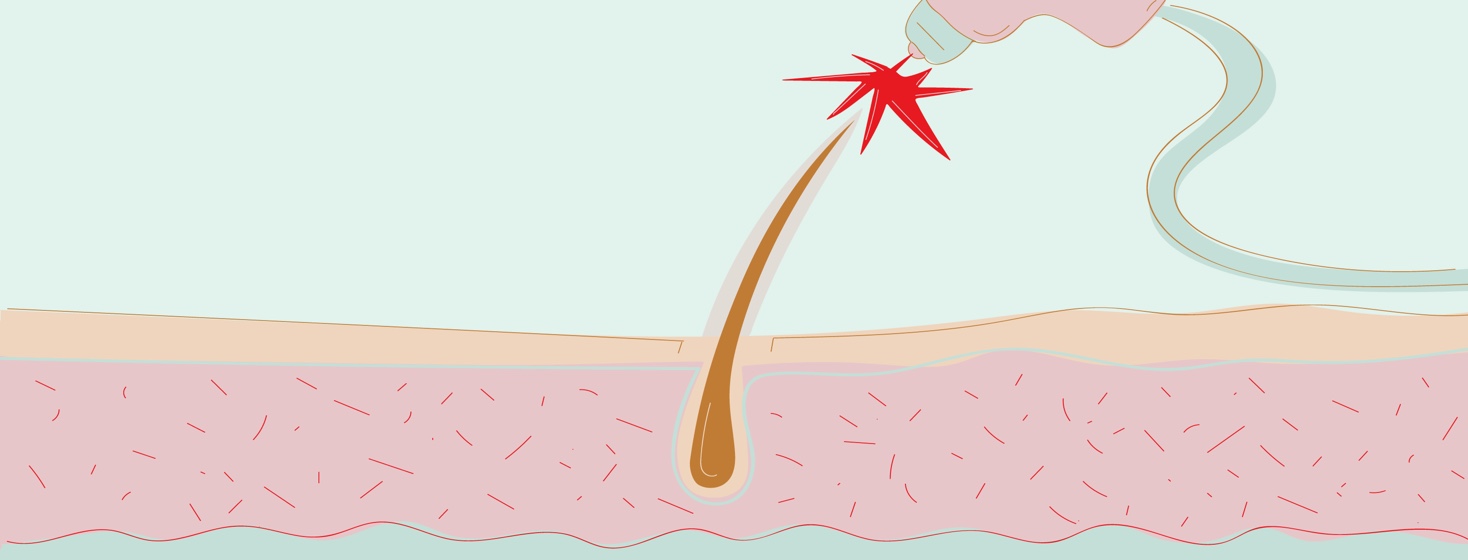My Experience with Laser Hair Removal
Last week marked my 4th round of laser hair removal on my legs and bikini line. With a cumulative six hours of treatment under my belt (literally and figuratively), I thought I should share my story!
I’ve talked previously about hair removal for psoriasis, but this was my first dive into laser hair removal for myself.
So, how does it work?
In a nutshell, laser hair removal works by sending pulses of laser light down the hair follicle which kills the root and prevents the hair from growing back. Generally, once destroyed hair follicles will not produce hair again, but the effect can be reversed by hormones.
The treatment generally works better on those with light skin and dark hair, as most of the laser pulse is absorbed by the pigment in the hair and not in the skin. If you have very dark skin or very light hair, this procedure may not be effective for you. Compared to shaving and waxing, laser hair removal is expensive, but the effects are certainly more permanent and long-lasting.
What is the impact on symptoms?
Many technicians at the clinic did mention that laser hair removal can actually improve psoriasis plaques because of the laser light. I did not find this to be the case, but it would have been nice!
In my experience, the treatment was uncomfortable but bearable on my normal skin (except around my bikini line, which required lots of swearing to tolerate). However, anytime the laser moved over my guttate psoriasis spots or broken skin (razor nicks, cuts, etc.), the pain was immediate and very uncomfortable.
The reason for this is that the laser actually produces quite a bit of heat, so this further irritates inflamed skin. For about a week following each treatment, my legs were also very itchy. The degree of post-treatment irritation varies by individual; those who have sensitive skin are more likely to have trouble.
Tips & advice
If you are getting laser hair removal, you should avoid anything that increases heat or friction on your skin in the days following the treatment.
Moisturizing post-treatment is key, and avoiding the sun or tanning is also a recommendation (because you’re at increased risk of sunburn, but also because tanning darkens your skin, which makes subsequent treatments less effective).
Most clinics will also advise you don’t scratch if your skin is irritated; ice packs and cold water are good ways to soothe the itchiness.
Final thoughts
Yes, after four treatments my leg/bikini hair has reduced by more than 50%, and the hair that is there is much lighter and finer. Would I recommend this for other psoriasis sufferers? It depends.
One huge consideration is that I, unlike others, am not prone to the Koebner phenomenon. If I get razor nicks or irritation from the heat of the laser, I won’t generally see new psoriasis in those places.
If this is not the case for you, please be cautious when considering this procedure. Check-in with your dermatologist first, and be sure to call ahead to clinics to check that they are knowledgeable about psoriasis.
If you do decide to give laser hair removal a try, let me know how it goes! If it hurts for you as much as it did for me, know that out there, there is someone else cursing as they get their bikini line zapped.

Join the conversation